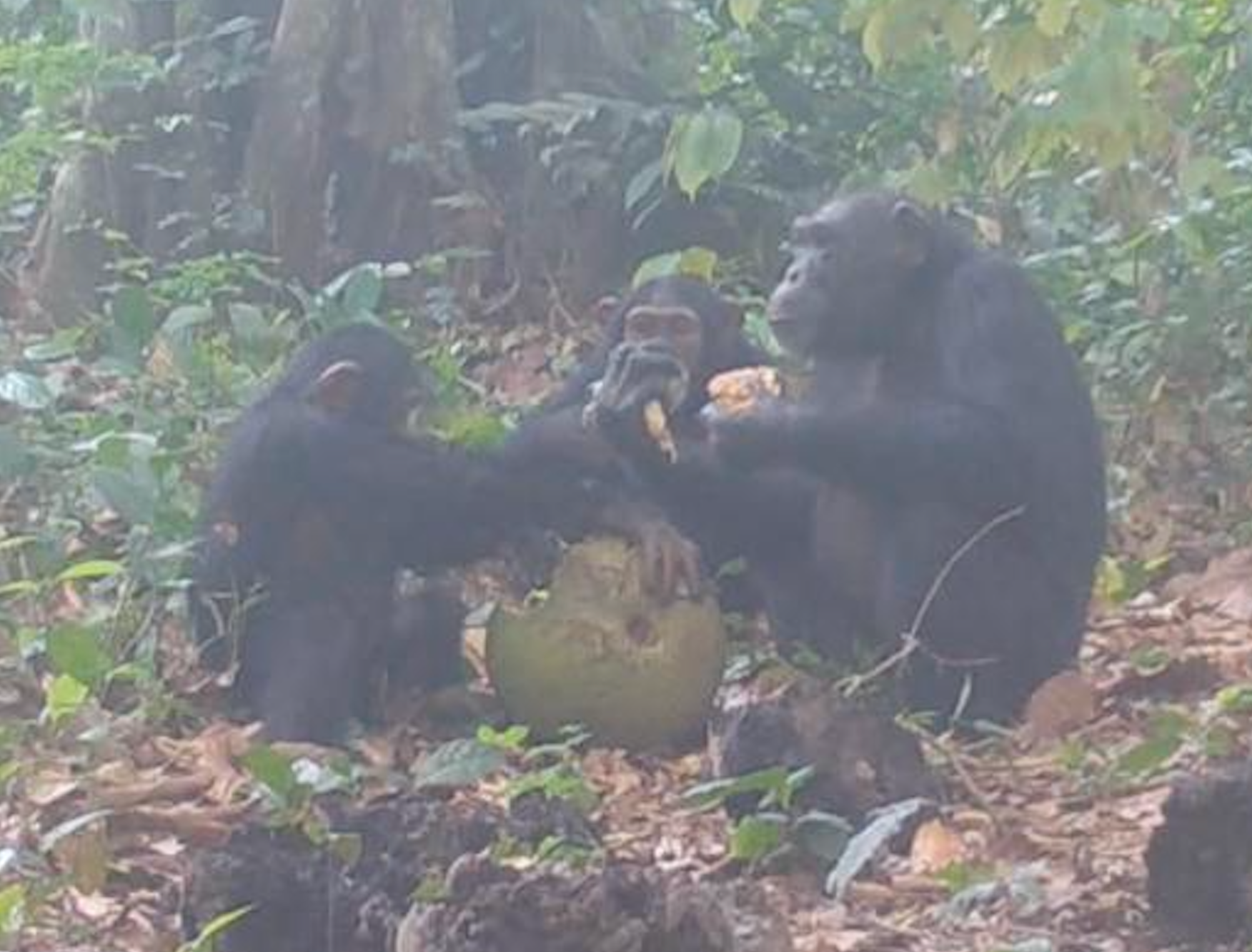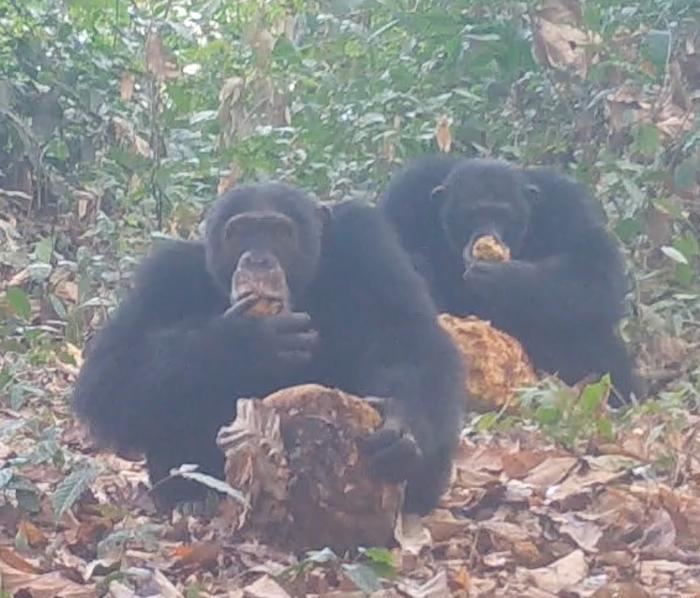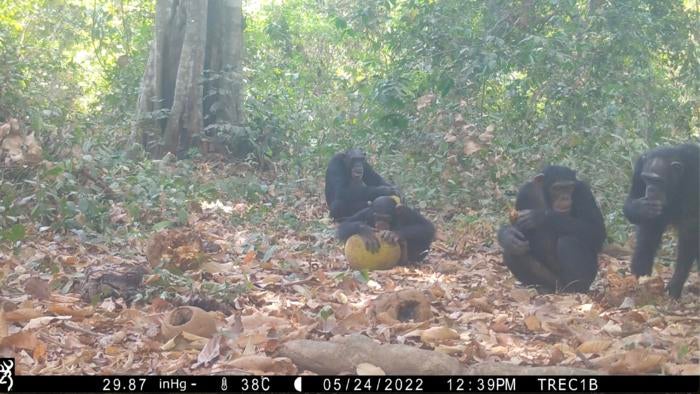Chimpanzees have been spotted eating and sharing an alcoholic fruit in the wild for the first time, leaving scientists perplexed about why the primates would deliberately seek such a diet.
Motion-activated cameras set up by researchers in the Cantanhez National Park in Guinea-Bissau captured the footage of chimpanzees sharing fermented African breadfruit, known to contain ethanol, on 10 separate occasions. This peculiar behaviour may offer chimpanzees the benefits of social bonding, not unlike in humans, the researchers note in a study published in the journal Current Biology.
“Here, we document for the first time the repeated ingestion and sharing of naturally fermented African breadfruit with confirmed ethanol by wild chimpanzees,” the researchers write, adding that there may be more to understand about this primate behaviour from the latest observation.

“Chimps don’t share food all the time, so this behaviour with fermented fruit might be important,” Kimberley Hockings, a study author from the University of Exeter, said.
“We need to find out more about whether they deliberately seek out ethanolic fruits and how they metabolise it but this behaviour could be the early evolutionary stages of feasting.”
The researchers tested the fruits shared by the chimps for alcohol content and found the highest level was 0.6 per cent ABV, or alcohol by volume, a measure used to gauge alcoholic drinks. Since 60-85 per cent of a chimpanzee’s diet is fruit, even low alcohol content could add up to significant consumption.

Yet, even with this level of consumption, the researchers suspect the chimps are unlikely to get “drunk” as this may “clearly not improve their survival chances”.
In comparison, beer typically has an ABV of 4 to 6 per cent.
The latest finding, the researchers say, could be the “tip of the iceberg” in alcohol consumption behaviour among primates.
“For humans, we know drinking alcohol leads to a release of dopamine and endorphins, and resulting feelings of happiness and relaxation,” Anna Bowland, a co-author of the study from the University of Exeter, said.
“We also know that sharing alcohol, including through traditions such as feasting, helps form and strengthen social bonds.”

The research also raises several perplexing questions about chimp behaviour.
Scientists are still unsure about the impact of alcohol on chimps’ metabolism.
A growing body of research points to an adaptation in the common ancestor of African apes that greatly increased ethanol metabolism.
Taken together, the studies suggest that eating fermented fruits may have ancient origins in species including humans and chimps.
The latest discovery also indicates that the human tradition of feasting may have origins deep in our evolutionary history.









